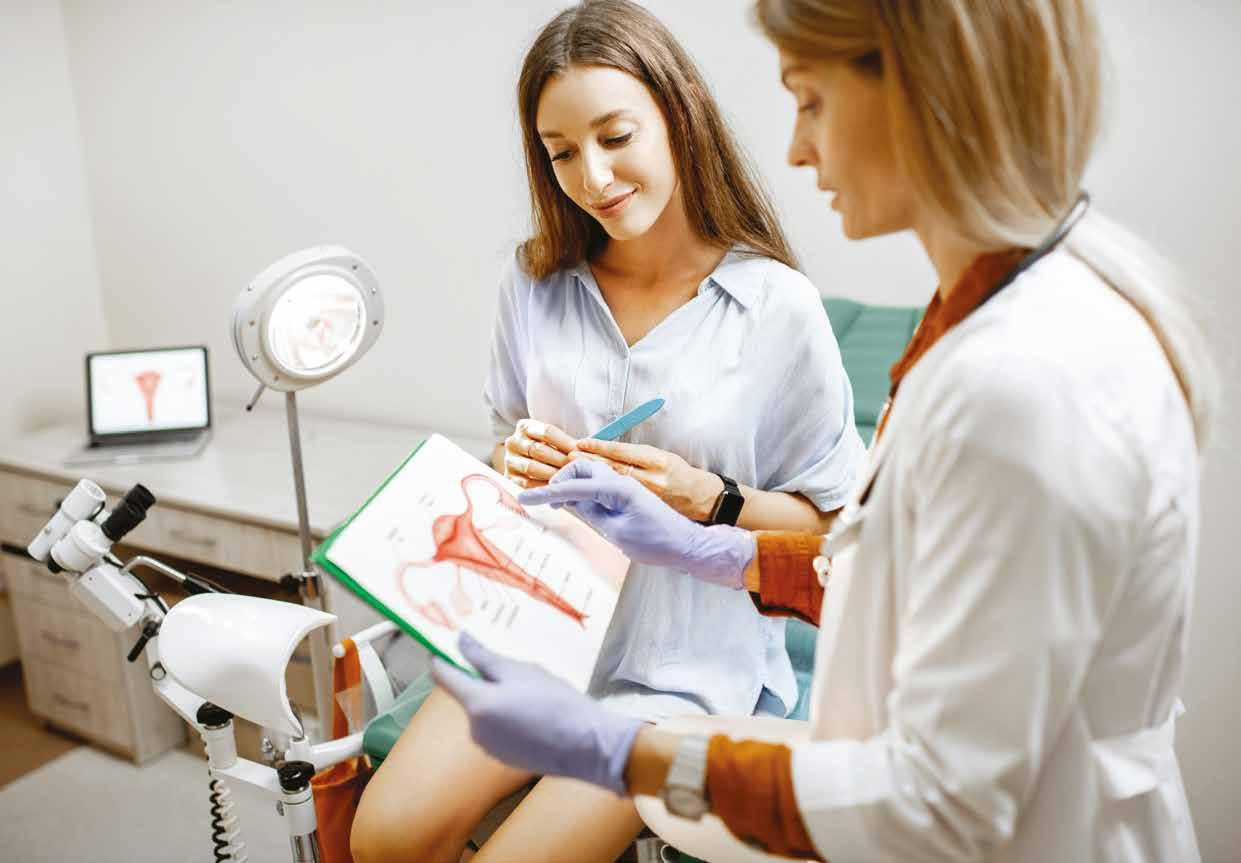
2 minute read
Cervical Screening
Dr Katy Kasraie, The London
In females in the UK, cervical cancer is the 14th most common cancer, with 3200 new cases every year and 850 deaths each year.
99.8% of cervical cancer cases in the UK are caused by persistent High Risk Human Papilloma Virus (HR-HPV) infection. Cervical cancer is highly preventable through HPV vaccinations for 12- to 13-year-olds and cervical screening programme. Sadly, the figures show that only 70% of women invited for cervical screening take it up.
A recent study by Jo’s Cervical Cancer Trust found that women who didn’t attend their smear test said that being embarrassed about their body, or feeling embarrassed that a stranger would be examining an intimate area; or fear it will hurt as reasons for non-attendance.
Cervical screening is a very important test for early detection of cell changes of the cervix. Early testing can help prevent the development of cancer. Women in the UK between the ages of 25 and 64 years are invited for regular cervical screening under the NHS cervical screening programme.
At the cervical screening appointment, a doctor or nurse will take a sample of cells from the cervix using a small soft brush. This is not a painful procedure, and it can take less than one minute to take this sample. The sample is tested for highrisk human papilloma virus (HR-HPV). HPV is a group of viruses, some of which can lead to cell changes in the cervix which can then lead to cancerous changes.
If your smear test shows that HPV is negative, no further testing will be needed, and the doctor will recommend when to schedule a repeat screening. It is unlikely you will develop cell changes or cervical cancer without having HPV. If HPV is found (positive results), then cytology is performed on the sample. This looks for abnormal cell changes in the cervical cells. If the cells look normal, then usually a repeat HR-HPV test will be recommended in 6-12 months.
If abnormal cell changes are found, those patients may be referred for a colposcopy. A Colposcopy is an examination where the cervix can be looked at in more detail, further samples can be taken of any abnormal areas and treatment given if necessary. Many cell changes go away on their own, but some may develop into cancer, a colposcopy helps identify which may need treatment.
There is a vaccine against HPV and is currently offered to girls and boys from the age of 12 on the NHS and can also be given in private clinics. If the vaccine is missed, you can still speak to your doctor about getting one. The vaccine aims to stop you getting some types of the HPV virus. It is still recommended that you continue to have smear tests if you are vaccinated as it does not protect against all types of high-risk HPV.
Cervical screening should not be delayed as it is one of the best ways to protect yourself against cervical cancer. So if you have received an invitation, or missed your last screening, don’t delay making an appointment as getting checked can save your life.


The Details
To book your screening appointment, please call now: 0207 935 1000 Or email info@thelondongeneralpractice.com
The London General Practice 114a Harley Street, London W1G 7JL
OPEN 24 HOURS A DAY, 7 DAYS A WEEK
Private GP Services thelondongeneralpractice.com

Occupational Health and Corporate Health Services


